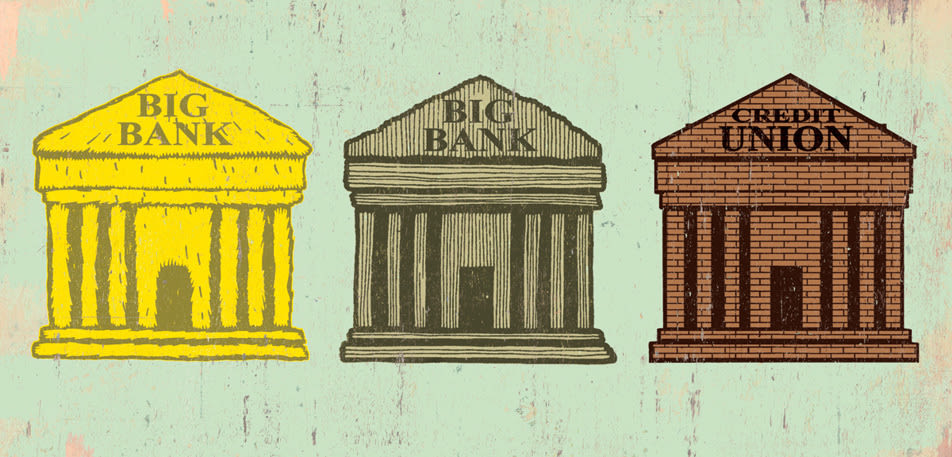Safe House

Image: Dan Page
In September, a dozen members of the Credit Union Association of Oregon headed to Washington, DC. The trip, called Hike the Hill, is an annual pilgrimage during which Oregon’s elected national officials grant members of the trade group face-to-face meetings to discuss any issues confronting the state’s 83 credit unions.
In terms of timing, this year’s journey turned out to be particularly serendipitous. Congress was in the midst of debating the $700 billion bailout bill, and the credit unions had a strong message to deliver: We didn’t make this mess.
It’s no wonder that the group was greeted warmly. “Everyone said, ‘You guys aren’t part of this; you guys are the good guys,’” says Chuck Garner, CEO of Oregonians Federal Credit Union and part of the Hike the Hill delegation.
Once saddled by what Wall Street Journal blogger Brett Arends has called a “sleepy, backwater image,” credit unions and their conservative lending and investment practices now are being held up as prescient and smart. Partly as a result, Oregon’s credit unions, like others around the country, are reporting unprecedented growth. “New members are showing up [at our credit unions] in droves,” says Troy Stang, president and CEO of the Credit Union Association of Oregon.
In fact, so many Oregonians are moving money into credit unions that Stang’s group has had to develop webinars and other training programs to teach credit union staff how to handle customers’ requests for detailed information on topics ranging from lending strategies to federal deposit insurance. “We haven’t had to answer these kinds of questions from consumers in so long, so we’re getting [employees] up to speed,” Stang says.
As not-for-profit institutions, credit unions largely have avoided the problems that have befallen large commercial banks in the past six months. Unlike those banks, which are beholden to “other investor interests on a street in New York City,” as Stang puts it, credit unions are beholden to their members—they operate a bit like the REIs of personal banking. The model is one that, by its very nature, places a higher premium on security than on risk, and therefore limits credit unions’ exposure to economic upheaval. “We don’t make large business loans; we don’t have loans with builders based on building speculation,” Garner says.
Some of Oregon’s 36 state-chartered banks, many of which are small and medium-size banks that serve specific communities, did make such loans, however, and as a result even they’re feeling the pinch of the current economy. “By the start of 2008, everyone was shocked at how fast real estate values changed,” says David Tatman, administrator of the Department of Consumer and Business Services’ Division of Finance and Corporate Securities, the state agency charged with monitoring these banks’ financial soundness.
This is not to say that credit unions operate in a kind of padded room, isolated from the vagaries of the economic downturn—far from it. Oregon’s credit unions are reporting an average of about 1 percent in loan delinquencies, which is higher than the 0.6 percent they reported a couple of years ago. “We’re affected by people who are unemployed. Some members have funny mortgages with other places,” notes Garner, all of which can drive delinquency ratios up. And while Oregon’s credit unions are capitalized at an average of 10 percent, meaning that they have 10 percent of overall capital in reserves to cover bad debt, it’s clear that that figure will drop if the economy goes into recession: “How long will the storm last? We don’t know. Which begs the question, is 10 percent enough?” Stang says.
But for now, credit unions are enjoying kudos and praise rarely heaped upon these not-for-profits that some have considered almost quaint. It’s not without a bit of pride that Brooke Van Vleet, chief administrative officer of First Tech Credit Union, which has 17 branches between Eugene and Seattle, explains why her credit union didn’t make a single subprime loan. “They just weren’t in the members’ best interest or the credit union’s best interest,” she says. As if it should have been the most obvious thing in the world.




